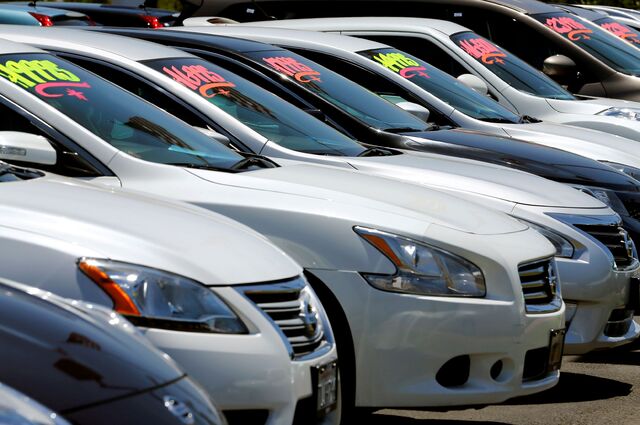قطاع السيّارات المُستوردة في الرمق الأخير
لم يكفِ قطاع بيْع السيارات الأزمات التي مرّت عليه جرّاء ما حلّ بموضوع هيئة إدارة السير وما عاناه من تهديد لديمومته، حتى جاءت الحرب وكبّدته خسائر إضافيّة وصلت إلى ملايين الدولارات، ليس فقط لناحية البيْع والشراء بل لناحية الأضرار المُباشرة التي طاولت معارض السيّارات في الأماكن المُستهدفة.
هذا الواقع أرخى بظلاله على قطاعات أخرى، وبالتالي تأثّر حجم التوظيف في هذا القطاع حيث عمد أصحاب المؤسسات إلى دفع نصف راتب للعاملين والموظفين، حتى لا يتمّ تسريحهم، ولكنّ الخوْف هو من الأيّام المُقبلة التي قد تضطرّهم إلى صرف جزء كبير من العمّال.
يشرح نقيب مُستوردي السيارات المُستعملة إيلي قزي أن “المواطنين اللبنانيين يتخوّفون ويتردّدون حاليّاً قبل شراء سيارة لأنها تُركن على الطرقات ما يجعلها أول المُقتنيات التي تتعرَّض لأضرار مباشرة سواء من القصف أو من تظاهرة أو من أي ردّة فعل أخرى”، مُضيفاً “أيّ مشكلة تحصل في البلد مهما كان نوعها أو حجمها يكون قطاع السيارات أوّل من يتأثر بها، فحتى لو قرّر مسؤول سياسي إلقاء خطاب مُقلق قد تتراجع الحركة في قطاعنا لأشهر”.
ويُشير إلى أنّ “شراء السيّارات يُعتبر من الكماليّات، غير أنه في الواقع من الحاجات الأساسيّة لأن السيارة في لبنان ضروريّة لا يُمكن الإستغناء عنها”.
خسائر بملايين الدولارات
ويكشف قزي لـ “نداء الوطن”، أنّ “قيمة الخسائر الناتجة عن تضرّر السيارات المُستوردة في الحرب وصلت إلى حوالى 60 مليون دولار”، لافتاً إلى أنّ “مشكلتنا لا تقتصر على القصف ونِسب الأضرار التي تلحق بالسيارات المستوردة، لكن المشكلة الأهمّ هي أنّ الحركة في هكذا وضع معدومة، بالتالي السيارات الموجودة في المعارض تخسر نسباً كبيرة من قيمتها ما يتسبّب بخسائر ماديّة للمستوردين تُقدّر بملايين الدولارات لأنّ السيّارات لا تُصرَّف والقيمة الشرائيّة صفر، في حين أن مصاريف أصحاب المعارض مستمرّة”.
“واقع العمال… نصف راتب”
وفي ما يخصّ وضع العمال في القطاع، يُوضح أنّ “عددهم يصل إلى حدود العشرة آلاف عامل على مختلف الأراضي اللبنانية ولم نصرف أيّاً منهم إنما يتقاضون نصف راتب”.
هجرة القطاع؟
أمّا بالنسبة إلى القدرة على الصمود، فيؤكّد قزي أن “هذا القطاع يدخل نسباً كبيرة من الأموال إلى الخزينة ويُساهم في تشغيل العديد من القطاعات الأخرى لأنّ كل سيارة مستعملة يتم تصليحها وتحسينها. منذ العام 2019 ونحن نتلقّى الضربة تلو الأخرى، بدءاً من الأزمة الإقتصادية وأزمة المصارف وكورونا وانفجار المرفأ وارتفاع رسم الجمارك وغيرها وصولاً إلى الحرب. تكبدنا الكثير من الخسائر خلال هذه السنوات ورغم ذلك حاول القيّمون على القطاع الحفاظ على الاستمرارية باللحم الحي من دون أي مساعدة رسمية. وفي هذه الأزمة لا نأمل بأن نحصل على أي دعم من قبل الدولة ولا يمكن أن نتوقع مدة الفترة التي يمكن أن نصمد خلالها، إلّا أنّ الأكيد أننا سنبدأ بالإقفالات ما لم تتحسّن الأمور في ظرف شهر من اليوم وسنسمع بهجرة القطاع لإعادة التمركز في دول أخرى”.
“حركة التأجير معدومة”
وعن قطاع تأجير السيارات، يأسف كونه “أيضاً في أسوأ أحواله والحركة معدومة في حين أن حجم مصاريفه والتزاماته كبيرة”.
Imported Car Sector in Lebanon Faces Major Crisis: Losses and Challenges
The imported car sector in Lebanon is facing significant challenges, particularly following a series of crises that have affected the industry. These range from issues with the Vehicle Management Authority to the economic and social turmoil, culminating in the war's devastating effects, which have led to losses amounting to millions of dollars.
Eli Qazi, the head of the Lebanese Used Car Importers Syndicate, explains that the car sector in Lebanon is one of the first to be affected by any crisis. Currently, Lebanese citizens are hesitant to buy cars due to the risks of them being damaged from bombings, protests, or other reactive incidents. Despite being often viewed as a luxury, cars in Lebanon are actually an essential need, given that a car is considered necessary for daily life in the country.
Huge Losses Due to Direct Damages
Reports indicate that the losses in the sector due to direct damage to imported cars as a result of the recent war have reached approximately $60 million. However, the biggest challenge isn’t just the physical damage to vehicles but the complete halt in sales activity. With cars stuck in showrooms, they lose a significant portion of their value, leading to massive financial losses for importers. As a result, sales activity has nearly vanished, and the purchasing power has dropped to zero.
The Labor Situation in the Sector: Half Salary
Regarding the workforce in the sector, Qazi points out that there are approximately 10,000 workers across Lebanon in this field, none of whom have been laid off so far. However, these workers are only receiving half of their usual salary due to the difficult circumstances facing the sector.
Is the Lebanese Car Sector Facing Migration?
As for the sector’s ability to survive, Qazi stresses that the imported car sector contributes significantly to Lebanon’s economy by generating revenue for the state and providing jobs in related industries such as maintenance and repairs. Despite this, the industry has faced multiple blows since 2019, starting with the economic crisis, the banking crisis, COVID-19, the Beirut port explosion, customs duties, and the recent war. The sector has sustained heavy losses, and the industry’s leaders have done their best to keep it afloat without official support. If the situation does not improve soon, the industry may be forced to shut down, with the possibility of businesses relocating to other countries.
Car Rental Sector: A Major Downturn
The car rental sector is also suffering from a complete lack of activity, with a significant drop in demand. Despite the substantial overhead costs involved, the sector remains in a dire situation. According to sources, the car rental market is in its worst condition, which only exacerbates the overall crisis in the sector.
Translated by economyscopes team
المصدر: رماح هاشم – نداء الوطن
 سكوبات عالمية إقتصادية – EconomyScopes إجعل موقعنا خيارك ومصدرك الأنسب للأخبار الإقتصادية المحلية والعربية والعالمية على أنواعها بالإضافة الى نشر مجموعة لا بأس بها من فرص العمل في لبنان والشرق الأوسط والعالم
سكوبات عالمية إقتصادية – EconomyScopes إجعل موقعنا خيارك ومصدرك الأنسب للأخبار الإقتصادية المحلية والعربية والعالمية على أنواعها بالإضافة الى نشر مجموعة لا بأس بها من فرص العمل في لبنان والشرق الأوسط والعالم




